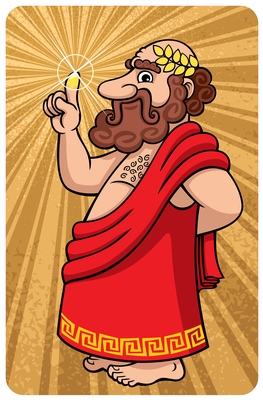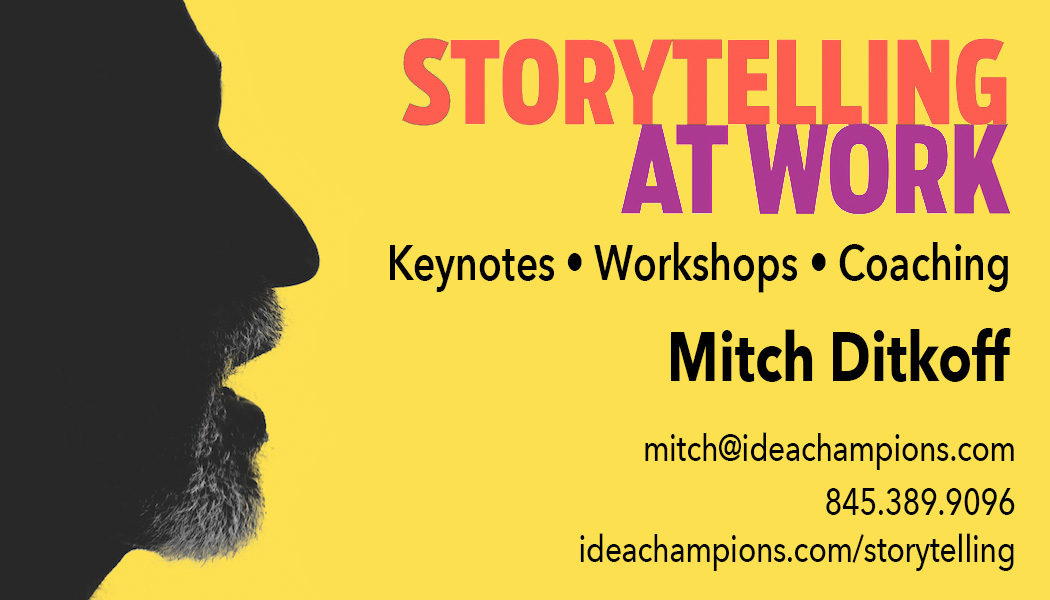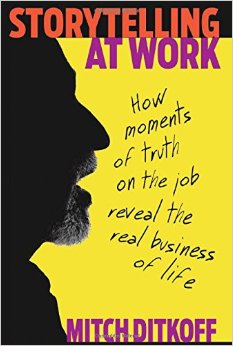How to Sell Without Selling
 A few years ago, my wife and I bought a Turkish rug from Mehmet, Istanbul's Steve Jobs of rug merchants.
A few years ago, my wife and I bought a Turkish rug from Mehmet, Istanbul's Steve Jobs of rug merchants.
If I could run my company as well he could sell, I'd be a very wealthy man.
Technically, speaking, Mehmet didn't really sell us anything. He simply created the conditions that allowed us to buy (which some people, I know, will think is really just a clever form of selling, but it wasn't.)
How did Mehmet work his magic, when all we did was sit down at his cafe to drink some coffee with no conscious desire to buy a rug?
MEHMET'S MAGIC
1. He effortlessly established rapport
2. He gave us all the space we needed
3. He shared his knowledge with great feeling
4. He had beautiful rugs and knew them better than most people know themselves
5. He loved what he did
6. He had a wonderful sense of humor
7. He had kind eyes and a big heart
8. He conducted the transaction in the spirit of service
9. He asked us how much we thought the rug was worth and then sold it to us for less.
10. He knew what he was doing and he did it with the perfect blend of flair and humility.
Take a moment to think about the way that you currently sell your product or services. If it's not going quite as well as you'd like, ask yourself: "What can I learn from Mehmet the Rug Merchant?"
Posted by Mitch Ditkoff at 01:09 AM | Comments (2)
October 26, 2016Deciphering the Secret Code of Tacit Knowledge

What is it that all human beings share in common other than the need for air, water, and the undeniable fact that they will answer this question in a wide variety of ways? Well, at the risk of disturbing the people likely to answer this question in a wide variety of ways, I would venture to say a deeply ingrained need to know -- a search for the kind of knowledge needed to thrive in this world.
For some of us, this knowledge-seeking impulse revolves around survival -- how to grow food, create shelter, and avoid being eaten by the nearest predator. For others, perhaps those whose survival needs are already met, this knowledge-seeking drive takes the shape of more esoteric knowing -- understanding how the universe works, for example, or how to make a killing in the world of credit default swaps . For others, with more of a spiritual bent, it might take the shape of "knowing God" or "knowing the Self."
Regardless of the knowledge-seeking realm that drives a given individual, all three groups of people share one thing in common -- and that is a thirst to understand something they don't yet understand -- an insight, know-how, or wisdom they believe will add more value to their lives.

If this impulse towards knowing is, indeed, universal, then the question we need to be asking ourselves is: "What is the most effective way to obtain the knowledge we seek?" How do we learn what we don't yet know? And, conversely, how do we know what it is we need to learn?
Traditional knowledge seekers answer this question in fairly predicable ways -- an approach that usually frames the missing knowledge as a commodity that can be secured. "Ask someone who knows", might be one person's approach. Or "read a book" or "take a class" or, more recently,"Google it" -- the common assumption being that our missing knowledge is codified somewhere and can be communicated in a way that is transferable. And while there are definitely benefits to this kind of explicit knowledge transfer, the approach is inherently flawed, given the fact that there are many "things to learn" that cannot be learned this way.
Riding a bicycle, for example, is more easily learned by observing somebody riding a bicycle and then actually getting on a bike and experimenting than it is by reading a book about bike parts or the physics of bike movement. The same holds true for learning a language or kneading dough -- neither of which can be mastered by reading a list of instructions from "experts."
Each of these activities require a transfer of tacit knowledge -- the difficult-to-describe, intuitive, experience-based wisdom from someone "in the know".
It was Michael Polanyi, in 1958, via his magnum opus, Personal Knowledge, who first introduced the concept of "tacit knowledge" to the Western world -- his attempt to communicate that "we know more than we can tell" and that this knowing requires extensive, ongoing, personal contact with people-in-the-know, respect for prelogical knowing, practice, and a healthy dose of trust.
Some years later, Japanese organizational theorist, Ikujiro Nonaka, added his take on the matter, applying the tenets of tacit knowledge to the now growing field of knowledge management.
Whereas science is "know why" and networking is "know who", tacit knowledge is "know how"-- how homo sapiens (the "wise ones") transfer what they know to others in the most elegant, effortless, and effective way possible.
These days, as technology continues to escalate at an exponential rate, markets shift, and employee turnover increases, many forward thinking companies are doing what they can to codify their knowledge, building sophisticated software and knowledge management systems to ensure the ongoing transmission of know how within their enterprise.

And while their attempts are laudable, the fact remains that the transfer of tacit knowledge -- the intuitive, hard to articulate, feeling level knowing that is often the difference, as Mark Twain once explained, between lightning and the lightning bug -- remains extremely difficult to capture.
What does all of this have to do with storytelling? A lot. Because story remains one of the most effective ways human beings have discovered to communicate the essence of what they know and value.
And while it's true that tacit knowledge can never be 100% codified, the fact remains that story is know how's closest surrogate. Indeed, story is how the great Teachers, since the beginning of time, have chosen to communicate their message. If you have any doubts, all you need to do is deconstruct your favorite holy book and you'll soon discover that story (in the form of parable, allegory, and myth) is the main ingredient.
The bottom line? If you want to increase the amount of tacit knowledge transfer in your organization, community, team, or family find a way to go beyond the two-dimensional transfer of explicit knowledge. What follows are simple ways to begin:
1. Conduct interviews with your organization's tacit knowledge keepers
2. Create opportunities for people to observe and/or apprentice with your organization's tacit knowledge keepers
3. Record, distribute, and tell organizational stories that communicate key learning, insight, and wisdom
4. Initiate more hands on action learning (where doing replaces rote learning and intellectualizing.)
"Education is an admirable thing, but it is well to remember, from time to time, that nothing that is worth knowing can be taught." -- Oscar Wilde
Tacit knowledge workshop
Idea Champions
Excerpted from STORYTELLING AT WORK
Posted by Mitch Ditkoff at 01:15 AM | Comments (0)
October 19, 2016How to Create a Culture of Storytelling in the Workplace

Want to bring meaningful storytelling into the workplace -- to share insight, wisdom, and tacit knowledge? Want to spark a culture of innovation, caring and collaboration? I'm your man.
Why create a culture of storytelling?
Storytelling at Work
What people are saying about it
Videos, podcasts, and interviews on storytelling
Storytelling at Work blog
Posted by Mitch Ditkoff at 11:39 AM | Comments (0)
October 15, 2016STORYTELLING AT WORK goes to college (and never took an SAT)!

Good news! My award-winning book, Storytelling at Work, is going to be used, in the Spring, as a textbook for a very innovative Business Communications course at The Sage Colleges in upstate New York.
The idea for this was the brainstorm of Dr. Haidy Brown, who was looking for a different way to introduce her students to the power of personal storytelling. I think Dr. Brown is a genius! The two of us will be meeting, in December, to explore various ways she can use my book as a catalyst for breakthrough in the lives of college students.
If YOU are affiliated with a college and want to explore the possibilities with us, contact me: mitch@ideachampions.com. I have a dream -- that Storytelling at Work will be the "go to" textbook for business communication courses all over the world within the next two years.
My story-centric podcasts, interviews, and articles
My storytelling blog
Posted by Mitch Ditkoff at 11:25 PM | Comments (0)
October 11, 2016You Suck at Powerpoint!
Posted by Mitch Ditkoff at 06:33 PM | Comments (0)
October 09, 2016SNEAK PREVIEW: A Bold, New Way to Do Corporate Conferences

Idea Champions is thrilled to announce it will soon be launching a bold new service to transform the way it's clients plan for, design, facilitate, and follow-up their company's conferences. Why? Three simple reasons: 1) Most corporate conferences severely under-deliver; 2) The time for incremental improvement is over; 3) The "moment of truth", for most organizations, demands that a critical mass of forward-thinking people are in the same room at the same time and prepared to go beyond the status quo. The time for chatter, chirping, and hotel chicken is over. It's time for change. And real change is not a function of pep talks, carrots, and sticks. It's a function of intention, intrinsic motivation, and the willingness to do something different -- real time. The question, or course, is HOW?
This is not a new endeavor for us. We've been designing innovative conferences since 1987 (see below for testimonials). What's different is the times we are living in. Same old, same old doesn't work any more. It's time for breakthrough! And the odds of breakthrough actually happening can be significantly increased with the right mix of intention, preparation, vision, collaboration, and the savvy facilitation of group process. That's where we come in.

Breakthrough Summits is what we are calling our new service. Just as soon as we put the finishing touches on our new website, we will post the link here for your review.
In the meantime, if you have a conference coming up within the next year or so and want to explore the possibilities with us, click this link. One of our conference mavens will get back to you ASAP. Maybe sooner.
WHAT OUR CLIENTS SAY ABOUT OUR CONFERENCE SERVICES
"We were looking for a miracle and then we found Idea Champions."
-- Paulette Esposito, Manager, Training and Development, Champion International
"Idea Champions made our annual conference on innovation a huge success. They not only expertly facilitated the process, but ensured that our company developed a culture that will foster innovation from here on in." -- Rick Yockelson, SVP of People and Administration, Hudson Group
"Idea Champions brings an infectious enthusiasm that will win over even the most cynical person in your organization!" -- Kevin Reilly, President, NBC Universal
"What a wonderful Innovation event Idea Champions put together for us! Talk about out of the box thinking, it was out of this world!" -- Eric Birnbaum, Sr. Packaging Engineer, Kraft Foods
"Idea Champions innovation keynote at our 2014 Developer's Conference was an energetic and engaging opening to our event. Thanks to the pre-work they did with us, their themes were perfectly synchronized with the objectives of the conference -- increase innovative problem-solving and increase global knowledge sharing. Idea Champions got our people thinking and prepared to tackle the interactive objectives of the meeting. After their part of the conference, it was 'Game On!'" -- Andy Billings, VP, Profitable Creativity, Electronic Arts
"Thank you very much for your recent program presented at our Worldwide Financial Manager's Meeting. Participants found the session fun and a great learning experience." -- John Stromberg, NCR Corporation
"Thank you for waking up a company to the opportunities created through the power of a unified team." -- Richard Nugent, CEO, generalRoofing
"I was highly impressed with the role Idea Champions played at our recent offsite. They worked very diligently to understand our goals, and more importantly, thoughtfully craft a customized agenda and format to help us to attain those goals. Their tone, demeanor, and presentation style were spot on and created an open, supportive atmosphere that allowed us to maximize our brainstorming efforts. I would highly recommend Idea Champions to any company." -- Rich Battista. President, Fox National Cable Networks
"Idea Champions is creative in their approach, experienced, willing to share their expertise readily, easy to work with, and delivers exactly what they promise." -- Peter Clist, Head of Management Institute, Allianz
"Idea Champions' keynote presentation was both entertaining and informative. Over 1,030 Merck employees attended and rated the session a 4.8 out of 5.0. In just two hours, participants not only "out of the cave" and generated a wide range of innovative and powerful ideas, they also finally understood what it takes to establish a sustainable culture of innovation within our organization." -- Jim Aubele, Associate Director of Organizational Learning, Merck
Other testimonials
Idea Champions
Our team
Want an RFP from us? Read this first
Posted by Mitch Ditkoff at 04:26 PM | Comments (0)
October 07, 2016It All Began With Balls
Here's a fun, 7-minute story about Idea Champions big breakthrough soon after we started the business -- inspiration for YOU to do something different, provide your clients an EXPERIENCE, and have some fun along the way. "If you always do what you've always done, you'll always get what you've always got."
This story in the Huffington Post
Excerpted from this book
Posted by Mitch Ditkoff at 07:59 AM | Comments (0)














